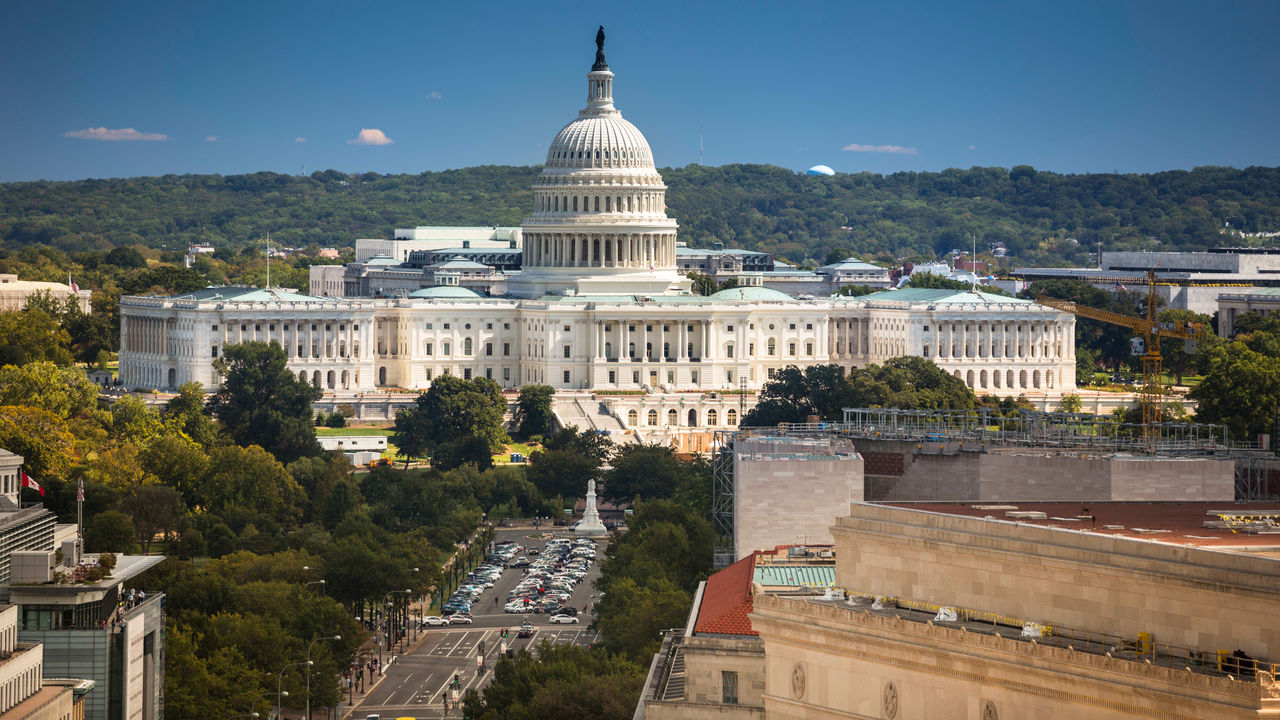[Updated March 18: The Senate passed H.R. 6201, and the president signed it into law. Watch for an updated analysis of the bill's provisions.]
The U.S. Senate approved the Families First Coronavirus Response Act in a 90-8 vote on March 18, and President Donald Trump signed it into law a few hours later. The bill will provide free screening, paid leave and enhanced unemployment insurance benefits for people affected by COVID-19, the respiratory disease caused by the coronavirus.
The U.S. House of Representatives passed the bill late on March 13. After several days of negotiation, House Speaker Rep. Nancy Pelosi, D-Calif., announced that negotiators had reached a deal with the White House to pass the bill. "We cannot slow the coronavirus outbreak when workers are stuck with the terrible choice between staying home to avoid spreading illness and the paycheck their family can't afford to lose," Pelosi said.
Republican senators were concerned that the bill might hurt small businesses, and Sen. Mitch McConnell, R-Ky., said lawmakers are working on another bill that would include relief for small businesses. McConnell said he would not adjourn the Senate until the third COVID-19 economic stimulus package is passed, CNN reported.
Trump declared a national emergency March 13, which frees up billions of dollars to fund public health and removes restrictions on hospitals to treat more patients. The Families First Coronavirus Response Act (H.R. 6201) will provide:
- Free coronavirus testing.
- Paid emergency leave.
- Enhanced unemployment insurance.
- Additional funding for nutritional programs.
- Protections for health care workers and employees responsible for cleaning at-risk places.
- Additional federal funds for Medicaid.
We've rounded up articles and resources from SHRM Online and other trusted media outlets on the news.
Paid Family Leave
As originally drafted, H.R. 6201 would have temporarily provided workers with two-thirds of their wages for up to 12 weeks of qualifying family and medical leave for a broad range of COVID-19-related reasons. The revised version of the bill will only provide such leave when employees can't work because their minor child's school or child care service is closed due to a public health emergency. Workers who have been on the payroll for at least 30 calendar days will be eligible for paid family leave benefits, which will be capped at $200 a day (or $10,000 total) and expire at the end of the year.
(Littler)
Paid Sick Leave
Under the bill, many employers will have to provide 80 hours of paid-sick-leave benefits for several reasons, including if the employee has been ordered by the government to quarantine or isolate or has been advised by a health care provider to self-quarantine because of COVID-19. Employees could also use paid sick leave when they have symptoms of COVID-19 and are seeking a medical diagnosis, if they are caring for someone who is in quarantine or isolation, or their child's school or child care service is closed because of the public health emergency. Paid-sick-leave benefits will be immediately available when the law takes effect and capped at $511 a day for a worker's own care and $200 a day when the employee is caring for someone else. This benefit will also expire at the end of 2020.
(CNN)
Large and Small Business Exceptions
Private businesses with at least 500 employees are not covered by the bill. "I don't support U.S. taxpayer money subsidizing corporations to provide benefits to workers that they should already be providing," Pelosi said on Twitter. Treasury Secretary Steven Mnuchin also said that "big companies can afford these things."
Covered employers that are required to offer emergency FMLA or paid sick leave will be eligible for refundable tax credits. Employers with fewer than 50 workers can apply for an exemption from providing paid family and medical leave and paid sick leave if it "would jeopardize the viability of the business." Gig-workers and other self-employed workers will be eligible for a tax credit to cover the benefits.
Lawmakers Previously Approved $8.3 Billion Emergency Bill
Another emergency spending package to fight coronavirus rapidly worked its way through Congress, and President Donald Trump signed it into law March 6. The measure will provide funds to develop a vaccine, provide protective and laboratory equipment to workers who need it, and aid locations hit with the virus.
Coronavirus Prompts Employers to Review Sick Leave Policies
Do employees have the right to take time off if they are concerned about contracting coronavirus? Can employers send sick workers home? Should employees be paid for missed work time? HR and other business leaders are likely considering these questions and more as COVID-19 makes its way through the United States. "We believe employers would be wise to review their paid-time-off practices immediately," said Francis Alvarez, an attorney with Jackson Lewis in White Plains, N.Y. "Employers are likely to face unique circumstances that were not anticipated when they prepared their attendance and leave policies."
Visit SHRM's resource page on coronavirus and COVID-19.
An organization run by AI is not a futuristic concept. Such technology is already a part of many workplaces and will continue to shape the labor market and HR. Here's how employers and employees can successfully manage generative AI and other AI-powered systems.




